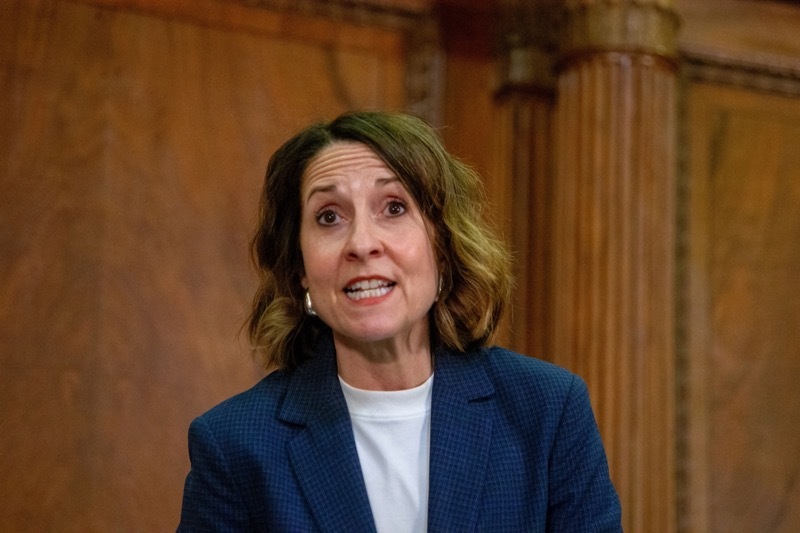THE new Secretary of State for Work and Pensions praised the council’s groundbreaking Pathways to Work Commission report at a special event in the town hall last week.
Liz Kendall, the Labour MP for Leicester West, spoke highly of the report alongside South Yorkshire Mayor Oliver Coppard, the leader of Barnsley Council Sir Steve Houghton and the Rt Hon Alan Milburn last Tuesday.
It was her first major appearance since the election and upon the appointment of her new role, she praised the report - and it’s hoped it will be used nationally to get Britain working again.
She said: “It really is brilliant to be here in Barnsley as you launch your pioneering report on pathways to work.
“You identify tackling economic activity as a critical challenge and opportunity for your town and our country.
“You call for a national ambition to build a more inclusive economy where people have a right to work and the expectation they’ll be helped to do so.
“Achieving this will require a radically new approach.
“I am here to say loudly and clearly - that’s what precisely what this government will deliver.”
She added that getting people into work is a priority for the new government - and the report can help aid that.
“Growth is the number one priority of this government because it is the only sustainable way we will improve people’s living standards and rebuild vital public services,” she added.
“I have always believed the benefits of work go far beyond a payslip.
“Having a job and providing for yourself and your family gives millions of people across Britain dignity and self respect.
“Work can bring pride, fulfilment, relationships and connections - a sense of purpose.
“Good work is good for mental health and for millions of women it can bring freedom, equality and independence, too.”
Alan Milburn, who has chaired the commission over the last year, said the report could be used nationally to support more and more people back into work.
He added: “In our country today there are one in five working age people who are economically inactive.
“Barnsley used to be the epicentre of mass unemployment following the closure of the mines.
“Unemployment was through the roof - today it’s lower than the national average.
“When we started our work here, there were 4,000 vacancies in the local economy and barely 4,000 people who were officially unemployed chasing them.
“Meanwhile, there were 6,000 people who wanted a job who were economically inactive and told they were unable to work.
“The Barnsley story is the Britain story, too.”
Among wide-ranging recommendations is a pilot programme which would support 2,200 people into work over a four-year period.
This would require investment of £10m, but would in turn generate almost £70m in economic benefits, including a £28m reduction in benefits payments.
The commission suggests this model could be used to support 10,000 people to return to work across South Yorkshire.
Nationally, raising the labour market participation rate from 78 to 80 per cent would give an economic boost of £23bn a year.
“The research we undertook for this report suggests that seven in ten people would take a job aligned with their interests, circumstances and their skills,” he added.
“If it was then applied nationally it would suggest there may be over four million people.
“This is the fuel that the economy needs.”



























